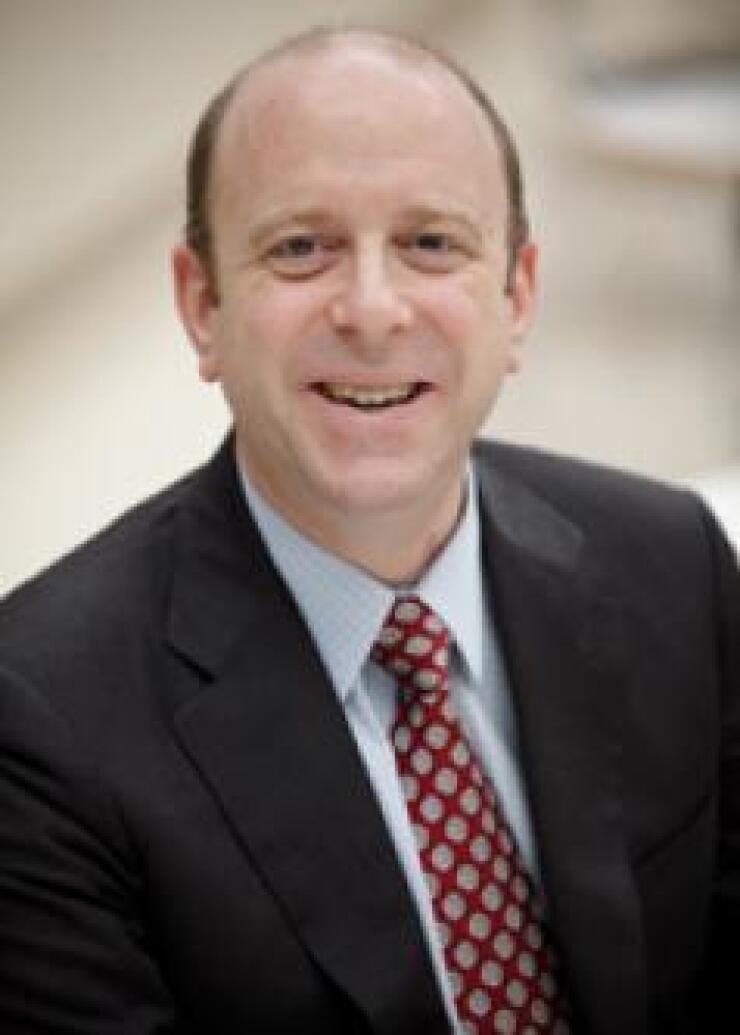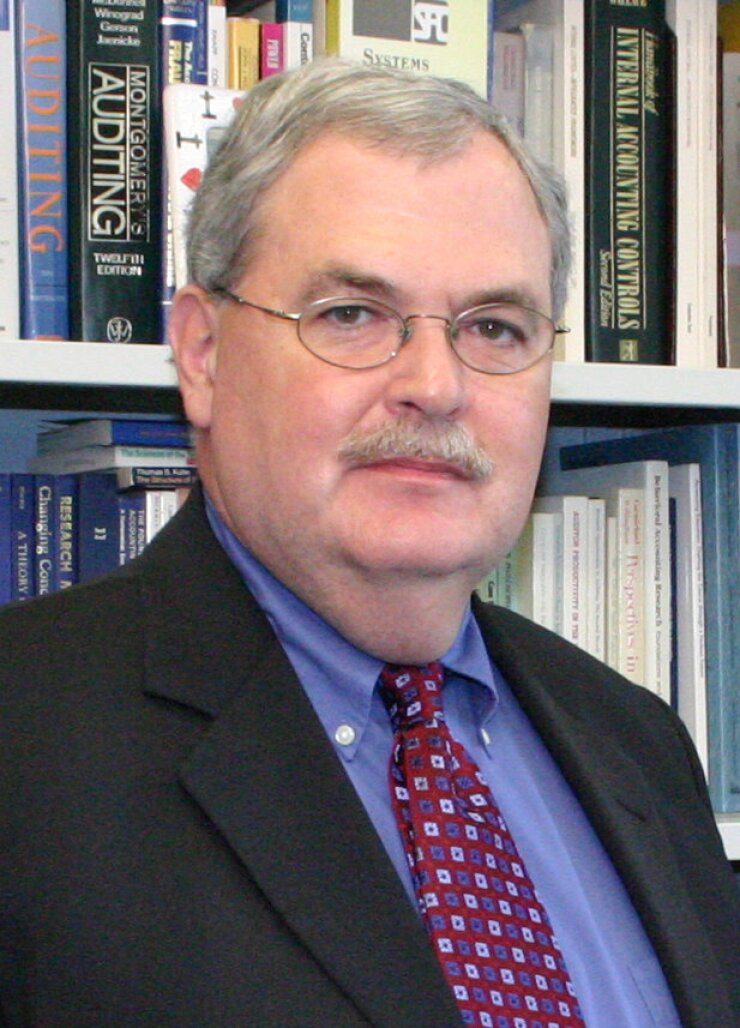The shortage of accountants has become a major
However, a smaller part of the accounting community also encounters pipeline challenges without attracting as much attention: researchers and faculty members. According to the Journal of College, Teaching and Learning, the number of accounting doctorates has continued to
This decline seems in clear conflict with a growing demand for accounting graduates, with the U.S. Bureau of Labor Statistics
So what went wrong?
This two-part story will first explore the academic publishing world to understand how accounting research contributes to the world of business and learning, before diving into the college world to understand what drives PhD candidates away.

What does it mean to be an accounting researcher?
The American Accounting Association, which promotes accounting research and education, has 17 journals in seven regions. To handle this long list of publications, the organization has a professional staff in Sarasota, Florida to take care of the administrative work, budgeting and payroll. The AAA recently engaged KnowledgeWorks Global, a solutions provider for the publishing industry, to handle publication of its journals. KnowledgeWorks in turn communicates with a third-party vendor to quicken the process between a research paper's validation and publication.
According to Mike Dawkins, the AAA's 2021-2022 president elect, it is essential for the organization's researchers and faculty members to receive feedback prior to publication, which is why they have the opportunity to present their work during mid-year meetings. This year, the meeting will take place in Denver, where around 4,000 members will gather to discuss their findings with reviewers. In addition, the organization conducts research and teaching workshops to support academics in their research process.
"We're also trying to bring together different sections of the AAA that share mutual interests and have joint meetings," said Dawkins. "I'm part of the diversity section, and we had a meeting last fall with the Teaching Learning and Curriculum section of the AAA to discuss ways to grow and diversify the accounting student pipeline."
A journal's editor, who changes every three years, is in charge of selecting senior editors, associate editors and other faculty members from all around the world. For example, Kathryn Kadous, a chaired accounting professor at Emory University, will soon replace Robert Knechel as senior editor of the Accounting Review, the AAA's most prominent journal. Because editors-in-chief come from different backgrounds and offer various methodological skills, there is a new team of editors at the start of every tenure, and this year will be no exception.
Dawkins said a researcher's goal is to examine what has been done in the past and add to the existing body of knowledge with new information. A lot of ideas come from the business community because they believe researchers have the tools and analytical abilities to investigate and provide some insight on concerns they have. When FASB issues a new standard, for example, it gets feedback from companies, individuals and government agencies to understand if the standard has the effect intended. And sometimes, FASB will rely on researchers to complement its findings.
"What we're trying to do is provide insights to the real world to help them address issues and concerns that they're dealing with on a day-to-day basis," said Dawkins. "And we're coming at it from an academic research perspective, based on our training in our doctoral programs and our knowledge of what's been done in the past."
In this situation, accounting researchers start from a resource perspective and analyze whether they can observe the intended benefits in the corporate community and how they can help investors and creditors. Their role is also to question the purpose of the standard, whether it can realistically meet its goals and objectives, and if the project had a solid accounting base to begin with. After that, academics can start their investigation and, if they are in behavioral research, conduct an experiment with auditors to measure and interpret social behavior.
When it comes to the most influential trends in accounting, Dawkins said he observed more and more research comparing GAAP earnings disclosures with non-GAAP disclosures to see which can better predict stock returns and consider alternative earnings metrics. As an academic in archival finance, Dawkins has focused most of his efforts on writing programs and running statistical analysis to investigate data that's sometimes a few decades old. He said a researcher's priorities often depend on their area of expertise.
"When an AAA member expresses an interest in having a journal in a particular area, like accounting historians did not so long ago, we look at whether there are enough members who have an interest in supporting this new journal and add it to the list," said Dawkins. "The AAA has been very responsive, over my 30-year career, in trying to serve the needs of members from a research, but also from a teaching perspective."
A burgeoning area of research is the use of AI, and how companies are deploying it in the practice of accounting on a day-to-day basis. With new trends in RPA and automation, machine learning and statistical analysis, Dawkins expects an increase in investment in those fields of research over the next five years. Long ago, during one of the AAA's annual conferences in New York, a Big Four partner predicted that technology would get so sophisticated that it would soon be able to audit 100% of a company's accounts receivables. And today, the profession is really close to that point.
However, developments in the accounting research community can only have as much impact as the number of scholars willing to join the field. Dawkins said that finding the solution to the decline in PhD students in accounting is more complicated than for undergraduate students, who are at the beginning of their journey. While convincing them to commit to a five-year degree is already difficult, few students are willing to give up a possibly six-figure career to study five more years for a doctorate.
Another problem is that, among professionals who decide on a career change, many do so to become a faculty member and end up disappointed by the degree's ratio of research to teaching. Dawkins said he was surprised by the amount of reading he had to go through to complete his PhD at Florida State University. While accounting professors teach and serve their communities, their primary job is to write and publish articles, which is not always appealing to prospective faculty.
"I think the problem of declining enrollments in accounting is a critical issue, and how the profession including firms, regulatory agencies, accounting programs, state societies and other entities respond to this topic is really critical," said Dawkins. "I've seen enrollments go up or down, but I think we're at a different point now that is cause for concern, and a lot of groups are trying to get together to figure out what to do."

When researchers impact the real world
Some people believe one needs to be careful when discussing the decline in accounting researchers. Philip Berger, an accounting professor at the University of Chicago, said the problem is not that accounting students are no longer interested in acquiring a PhD, but that there isn't enough demand for professors and that many are worried they can't place these students. While he recognizes there has been a shortage of accounting professors and that the supply of PhD students has gone down, the demand for graduates has remained steady at the University of Chicago.
According to Berger, the issue to address quickly is the demand for technical accounting skills. Since the 2008 financial crisis, he said that fewer and fewer MBA students choose technical finance or accounting jobs. Consequently, the demand for those types of classes has gone down as well, and professors often need to improvise to find alternative subjects they may be interested in. For example, Berger teaches accounting and entrepreneurship to respond to growing demand for accounting-related skills in private markets and publicly traded firms.
"Entrepreneurs, venture capitalists or private equity funders know that their businesses could benefit a lot from those skills," said Berger. "Similarly, there's a lot of demand for ESG-related teaching, and research has seen a shift in that direction. Basically, the challenge is moving away from technical accounting stuff toward other areas."
While there was only limited research available on topics such as corporate social responsibility, governance and sustainability a few decades ago, Berger said the interest in those fields has exploded in the last few years. Some institutions like Stanford University have invested millions of dollars to create research centers solely focused on ESG. Because there are many measurement and assurance challenges in the field of accounting, Berger believes it is particularly well positioned to address those issues.
For example, while more and more investors now limit themselves to firms with a strong focus on ESG standards and values, concerns have been raised about the reliability of ESG ratings, which measure how well corporate commitments, performance, business models and structures align with sustainability goals. Conflicts of interest can arise when an ESG rating agency provides advisory services to the company it rates, or there's a lack of transparency in the methodology it uses.
"We could play a role both on the measurement and the assurance side, but the U.S. is way behind not only in terms of the research, but also the industry in itself," said Berger. "In Europe, there's a lot of assurance around ESG metrics, whereas in the United States, there's just some sort of voluntary assurance with a wide range of providers, some of whom I wouldn't be so confident about their ability to verify the disclosures."
According to Berger, ESG research is even more critical in the sense that its real-world application has a significant impact on workers' and consumers' safety, even beyond accounting. In the mining industry, special regulators are in charge of protecting workers' health and safety, as well as reporting on incidents and penalties on their websites. However, these convoluted reports don't seem to have much of an impact and few people ever see them, resulting in very little public pressure to increase safety for mineworkers.
But in 2011, the Securities and Exchange Commission
After the mandate took effect, one of Berger's colleagues did a study to examine how the new rule influenced the mining companies' behavior with regard to mine safety and observed a significant improvement once consumers and investors could see the reports in the 10-K. With its focus on standard-setting and ESG, Berger believes this research to be particularly effective in demonstrating whether disclosure alone is enough to reduce corruption in similarly sensitive areas, or if companies need to do more. For example, some E.U. rules force European firms not to deal with African governments unless they've gotten certain assurances on conflict diamonds.
"A lot of accounting researchers are interested in looking at how to apply disclosure rules more broadly than just in accounting," said Berger. "But again, the accounting profession itself is more interested in accounting disclosures, obviously, and trying to make that link is going to take a little bit more time."
No one likes to take unjustified financial and time-related risks, and major entities mainly focus on areas that offer instant gratification. As a result, Berger noted during a joint conference held by FASB and the AAA that the research papers selected for discussion during the event only focused on areas the organizations were interested in, many of which he believed to be narrow and poorly executed.
Berger believes this lack of dialogue between FASB and the research community to be one of the factors explaining a decreasing interest in the most technical sides of the field, especially the rules introduced by regulatory agencies. In January, however, FASB

"My guess is that they're going to ask for our input in selecting the papers for the conference, but I don't think they will listen because our perspective as academics is a little bit different," said Berger. "The trouble is bridging that gap between the very specific rule a regulator may have on the top of their mind, and the longer-term perspective that the academic community wants to work on."
As the editor-in-chief of the Journal of Accounting Research, Berger leads a team of seven editors in addition to his teaching responsibilities, but he says such tasks are not that time-consuming when someone has done them for so long. It takes a significant amount of experience to become an editor and peer review other people's work, and even more rigor to assist PhD students in their research. Berger said that pursuing a doctorate is almost like an apprenticeship program, where a student learns alongside an experienced professor before passing on their knowledge to others.
This mentor-mentee relationship is critically important for scholars to become successful researchers, and PhD candidates often work with their professor as co-authors or assistants on existing projects to develop their own ideas while working on their thesis. Berger often advises them to bounce ideas off each other and come to professors with related interests, but he says the quality of a research paper ultimately depends on the rigor of the research method. Sometimes, they even turn to alternative methods such as conducting a field experiment in an accounting firm.
"While most firms refuse the offer, a student can suggest a better way to do accounting and have half of the company try their process at random, to test which one works better," said Berger. "As a result, being a professor also means teaching these new methods, and trying to help students learn how to contact accounting firms and convince them to participate."

When their efforts are halted
As the senior editor of the Accounting Review, Robert Knechel's responsibility is to ensure academic papers respect the journal's standards and policies. Once he finishes his review, Knechel then chooses which of the team's 30 editors will handle the decision process and assigns reviewers to perform an examination of the paper without knowing who the author is. Eventually, Knechel will make the final decision after reviewing these different opinions and approve the decision letter for the paper to go back to the author.
In 2021, the Accounting Review received 824 submissions and approved 2% of them.
It can sometimes take a long time before a manuscript gets published, but Knechel said this rigorous process is critical to protect the integrity of academic research. With new developments in the field, scholars need to adapt their areas of focus to what companies want to learn about. It's the editor's role to determine the value of a research project and whether it corresponds to their journal's philosophy and goals. When it comes to the Accounting Review, Knechel said the journal focuses on applied research, which he calls a bridge between "pure research" and real-world application.
"With applied research, the idea is to take a very real problem, examine it through a research microscope before sending a message back to the world with an academic explanation," said Knechel.
While the Accounting Review's audience is mainly composed of scholars and accounting professionals, Knechel's expertise in auditing research also attracts the attention of large accounting firms. While these firms only express interest in research projects that apply to their activities, Knechel said it's sometimes necessary to develop theoretical research where there's no obvious connection. For example, virus researchers had been conducting laboratory-based research on mRNA technology for over three decades before anyone showed a real interest. But when the pandemic hit, that theoretical grounding became essential for the quick development of vaccines.
When it comes to finance, there are many more opportunities for direct application with researchers using mathematical models to evaluate investments and make accounting valuations. Disclosure issues in financial statements and auditing techniques are also essential subjects in the field, and hot topics such as ESG reporting recently came to light with new climate disclosure and sustainability reporting requirements. But Knechel said research is not about saying yes to every company that wants to have a report on their carbon footprint. It's about finding whether they're truly going to use this information, and how they're going to interpret it, along with understanding its limitations.
"Once an issue is put out there, it triggers a whole new series of questions that research can come to bear on," explained Knechel. "For example, the PCAOB has adopted an evidence-driven policy that compels them to make a serious effort to either find out what studies exist or do their own research to make a decision that our knowledge would support rather than making a choice based on personal opinion."
While accounting research tackles recent issues and constantly needs to adapt, Knechel said the field is a fairly young activity whose current form only dates back to the 1960s. It took more than 20 years to build critical mass in the field and for researchers to chase research ideas, because issues such as globalization, financial complexity and governance didn't emerge until years later. As the world of business gets more complicated and interesting, so does accounting research.
But with changes come new challenges. More than finding a topic, finding ways to study proves to be difficult for researchers, because those working in accounting must rely on firms to collect data rather than experiment in laboratories. However, only a few firms are ever willing to share their information and, although the internet has made things easier for scholars, researchers still have to rely on public records and financial statements to get the necessary background.
"The quality and rigor of accounting research have increased dramatically, compared to 10 years ago, accompanied by significant technological improvements," said Knechel. "Researchers are very smart people, and we are an extremely creative community, but we can only do so much when we have to work with incomplete data or data that is too distantly connected to the phenomena we're trying to discuss."
Knechel said that researchers are in the same position as doctors who would be asked to perform an autopsy without being able to examine the organs. While he could understand their reasons, the cooperation of financial institutions could really contribute to the publication of valuable papers. As a result, Knechel believes that improving measurement technology will be essential in the future.

A lack of technology doesn't only force academics to go down paths that aren't productive, but also prevents them from keeping their jobs. When assistant professors don't have tenure or can't publish enough, they're often forced to look for a higher-paying position, and Knechel said they can't wait around for measurement technology to catch up to what they want to do. That trend, added to the shrinking number of PhD candidates in the accounting field, is a demographic, cultural and economic phenomenon Knechel said can be observed all around the world.
"The current generation of graduates doesn't want to work 80 hours a week only to get the pay of an editor or a professor," said Knechel. "They want to have a work-life balance, and is that unreasonable? Considering that I am over 60, I don't think I am fit to answer that question. Maybe my generation didn't need to think about that, or maybe we weren't smart enough to ask that question."





